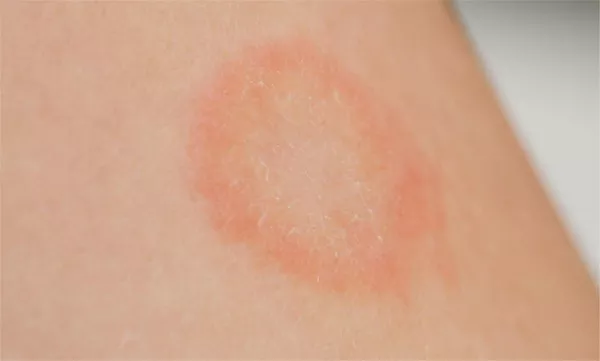Ringworm, despite its name, is not caused by a worm but by a fungal infection known as dermatophytosis. This common skin infection manifests as a red, itchy, circular rash with healthy-looking skin in the center. The fungus that causes ringworm can thrive on the skin, hair, and nails, and is highly contagious. It spreads through direct contact with an infected person or animal, or by touching contaminated objects like towels, clothing, or surfaces. Common types of ringworm include tinea corporis (body), tinea pedis (athlete’s foot), and tinea capitis (scalp). Early treatment is crucial to prevent the infection from spreading and causing discomfort.
Types of Antifungal Tablets
When it comes to treating ringworm, antifungal tablets are often prescribed to eradicate the infection from within, especially in cases where topical treatments have proven ineffective. Here, we explore some of the most common antifungal tablets used for treating ringworm: Terbinafine, Itraconazole, and Fluconazole.
Terbinafine
Terbinafine is one of the most commonly prescribed antifungal medications for ringworm. It works by inhibiting the production of ergosterol, an essential component of fungal cell membranes, ultimately leading to the death of the fungus.
Effectiveness: Terbinafine is highly effective against various types of dermatophytes, making it a go-to treatment for tinea corporis, tinea pedis, and even more stubborn infections like tinea capitis.
Safety Profile: Generally well-tolerated, Terbinafine’s common side effects include gastrointestinal discomfort, headaches, and in rare cases, liver toxicity.
Dosage: The typical dosage for Terbinafine is 250 mg daily for 2 to 6 weeks, depending on the severity and location of the infection.
Drug Interactions: Terbinafine can interact with certain medications, such as cimetidine (which increases Terbinafine levels) and rifampicin (which decreases its effectiveness).
Itraconazole
Itraconazole is another powerful antifungal agent that works by disrupting the synthesis of ergosterol, much like Terbinafine. It’s particularly effective against a wide range of fungi, including those responsible for ringworm.
Effectiveness: Itraconazole is effective against both dermatophytes and yeast infections, making it versatile in treating various fungal infections.
Safety Profile: While generally safe, Itraconazole can cause side effects such as nausea, vomiting, and in rare cases, congestive heart failure.
Dosage: The typical dosage for ringworm is 100-200 mg daily for 2 to 4 weeks. For more severe infections, a higher dose may be recommended.
Drug Interactions: Itraconazole is known to interact with a wide range of drugs, including statins, calcium channel blockers, and certain anticoagulants, so a doctor’s supervision is essential.
Fluconazole
Fluconazole is another antifungal medication commonly used to treat ringworm, especially in cases where other treatments have failed or are not tolerated.
Effectiveness: Fluconazole is effective against a variety of fungi, but it may not be as potent against dermatophytes as Terbinafine or Itraconazole. It is often used for tinea corporis and tinea pedis.
Safety Profile: Fluconazole is usually well-tolerated, with side effects like headache, nausea, and abdominal pain being the most common. It is considered safer for patients with liver issues compared to other antifungals.
Dosage: The dosage for ringworm is typically 150 mg once weekly for 4 weeks, though this can vary based on the infection’s severity.
Drug Interactions: Fluconazole can interact with medications like warfarin, leading to increased bleeding risk, and certain oral hypoglycemics, leading to hypoglycemia.
Choosing the Right Tablet
Choosing the best antifungal tablet for ringworm depends on several factors, including the type of ringworm, the severity of the infection, and the patient’s overall health. Here are some tips:
Consider the Type of Ringworm: Terbinafine is often preferred for tinea corporis and tinea pedis due to its effectiveness. Itraconazole might be a better option for more stubborn infections or when multiple types of fungal infections are present. Fluconazole is a good alternative for patients who may not tolerate other antifungals well.
Assess Your Health Conditions: If you have liver issues or are taking multiple medications, Fluconazole may be safer due to its relatively milder side effect profile and fewer interactions.
Consult a Doctor: It’s crucial to consult a healthcare provider before starting any antifungal treatment. A doctor can recommend the most appropriate medication based on your specific condition and medical history.
Where to Buy Antifungal Tablets
Antifungal tablets are available at most pharmacies and online retailers. However, these medications typically require a prescription, especially in higher doses used for ringworm treatment. Here are some reputable sources:
Local Pharmacies: Most local pharmacies stock antifungal tablets like Terbinafine, Itraconazole, and Fluconazole. A prescription from a healthcare provider is usually required.
Online Pharmacies: Reputable online pharmacies like CVS, Walgreens, and Amazon Pharmacy offer these medications. Ensure you have a valid prescription if ordering online.
SEE ALSO: How is Ringworm Contracted in Humans?
Home Remedies and Prevention
While antifungal tablets are highly effective, some home remedies can complement treatment and help prevent the spread of ringworm.
Home Remedies: Tea tree oil, apple cider vinegar, and coconut oil are popular home remedies for ringworm. These natural antifungals can be applied topically to soothe the skin and reduce infection spread.
Prevention Tips: To prevent ringworm, practice good hygiene by keeping your skin clean and dry, avoiding sharing personal items like towels or clothing, and staying away from infected individuals or animals.
Conclusion
When it comes to treating ringworm, choosing the right antifungal tablet is essential for effectively clearing the infection and preventing recurrence. Terbinafine, Itraconazole, and Fluconazole are all viable options, each with its strengths and considerations. Remember, it’s important to consult a healthcare provider before starting treatment to ensure the chosen medication is safe and appropriate for your specific needs. Additionally, complementing treatment with good hygiene practices and home remedies can help ensure a quicker recovery and prevent future infections.
Related Topics:


























